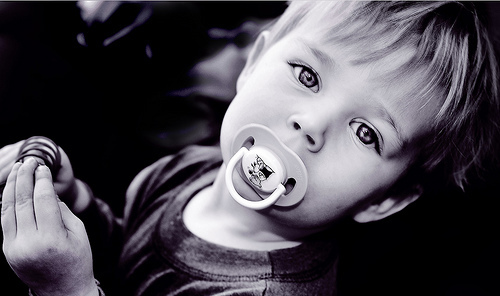How to Raise a Successful Child

Children Are Reflections of Us
Having children is beyond anything else in the human experience. Nothing else forces such perspective on our lives; nothing motivates us so much to better ourselves as people. A child can make our own inadequacies impossible to ignore, as evident as our anxiety over navigating home from the hospital with a brand-new girl. A parent suddenly sees the world as a series of potential threats to us , and it is that burgeoning sense of togetherness that becomes a parent's single motivation. Our fears grow exponentially with the growth of a child. We want our children to have success in their lives, and as importantly, we need our children to feel that sense of success.Our potential for creating a successful child lies largely within our ability to pour the proper foundation.
First Path: Bring The Basics
The first path toward fostering success in children is to supply the basics: adequate food, shelter, clothing, sleep, and comfort. While most of us take these elements for granted, if any one of them is ignored or under-supplied, the chances of our children enjoying a successful life drop dramatically. It is terribly difficult to craft any level of success with poor tools, a credit to such figures as Oprah Winfrey, Richard Pryor, and Michael Jackson. Good nutrition, a secure roof, warm clothes, rest, and opportunities to ignore the vagaries of life are all necessary elements to ensure that a solid starting point exists for success. It's necessary to consider these things before you have children; it is next to impossible to make up for a year of malnutrition or living in a car.

Second Path: Secure Support
The second path toward cultivating success in your child is to band with others. Single parents will be the first to attest to the difficulties they face: working full-time and raising children alone is a tall order. There is nothing stopping the children of single parents from being successful, but it is harder for those parents to provide everything by themselves. My wife and I often imagine what it would be like if either one of us were to take it on alone, and we're always left unsettled. Even the basics would be tough to supply responsibly. Raising children should never be a solitary pursuit; it is important to surround yourself and your children with as many kind, generous people as possible. Larger families have an internal structure of support, but anyone can develop a circle of friends that can serve as a surrogate family. Regardless of the size of your family, however, do not make the "me and my child(ren) against the world" mistake. This attitude only heaps the burden further on you alone and reinforces your child's view that the world is to be feared or avoided, rather than embraced. In order to be successful, a child must perceive herself to be part of a nurturing network of caring people.
Third Path: Free to Fail
The third path toward developing a sense of success in your child is to allow your child to fail regularly. As I write in Helping Children to Fail Well, if your child wins too easily or too often, he can develop a sense of entitlement. A sense of entitlement is the worst kind of cancer for success; a sense that the world owes him cripples your child's ability to dig in and try. From an early age, we seem to reward children for half-hearted efforts, and the consequence of this has been apparent. Children pass the buck for poor grades at school by blaming their teachers, and parents echo their cries; children incessantly beg for the latest gadgets and games, and parents reward their avarice. The battle against a child's perfect self-perception should be ongoing. A successful child is one who understands limitations and let-downs, because without these boundaries, a child never learns how to stretch her own potential. Without failure, children never learn how to create success.

Fourth Path: Become a Constant
The fourth path toward creating a sense of success in your child lies in your ability to be an emotional constant. Some fathers are stern, some are playful; some mothers are content, some are ambitious. As parents, we all have some highs and lows, but assuming our usual outlook is in the best interests of our children, it is more important to stick to who we are than it is to try to fit the model of a "good parent." Children who gain success as they grow typically have parents who firmly know who they are and demonstrate this with a level application. A parent must demonstrate emotional consistency, day in and day out. Our children need to know what to expect as they develop, and while this might be silliness or an eye toward discipline, so long as it's consistent and positive, our children will flourish. An emotionally inconsistent parent will foster emotional inconsistency in children, and this sort of instability cannot support real, long-term success.
Fifth Path: Refuse to Cement
The fifth path toward creating a sense of success in your child is to allow her to change and grow. It is damaging to have a permanent expectation of your child's minor likes and dislikes; ironically, even the expectation that a child wants success can undermine that possibility. Children are driven by many of the same inexplicable forces during development as we were, and painting them into corners only encourages rebellion or apathy. There's no need to say to a child: "but you like that restaurant" or "Science is your best subject." There's no need to control minor issues and preferences that will ultimately work themselves out. There's also no confusing this relinquishment with issues of ethics, as you always have an obligation to address what a child does. It is natural to say "it's not nice to hit others, so we don't do that"; try to avoid, however, "but you've always liked Johnny" as much as possible, especially as children get older.
Along these lines, avoid the habit of mentally or verbally modifying who your child is (a "successful child"); rather, allow your child to modify what she does (a child who "is able to enjoy success"). If this seems like a minor shift in attitude, it's not. A "successful" child is only a moment away from being an "unsuccessful" child, while a child who "is able to enjoy success" feels a comfortable sense of self despite making mistakes and changing course in life.

Proud of Our Reflections
Being a good parent is as easy as being a good person. While neither claim can be made without work and sacrifice, both are accomplishments worth the effort. Do what is necessary to ensure that the nervous drive home from the hospital was merely the first part of a careful navigation, one that leads to your child competently taking the wheel. My wife and I sometimes slip up, as you will, too, but every mistake we make is fuel for the journey. The growth in us is reflected in our children, and our children are our priorities. Prioritize the raising of children to be successful adults, and the ride is sure to be a rewarding one.









